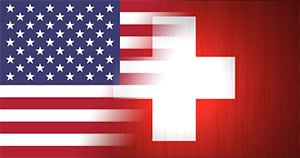The true extent of the US government war with Switzerland’s bankers over tax evasion has finally been revealed.
The battle between the two sides has rumbled on since 2009, when the US forced the biggest Swiss bank, UBS, to hand over the names of around 5,000 US customers accused of evading tax.
Now, it has been revealed the names of more than 10,000 Swiss bank employees – both current and retired – were handed to the US authorities.
Many were accused of aiding US customers to evade tax and to have actively assisted in breaking the law.
Few of the bank employees had any notion that their employers had handed this information to investigators, nor that they were being scrutinised for criminal prosecution.
Lawyer spills the beans
One Swiss lawyer who was helping US taxpayers was Edgar Paltzer, who has co-operated with the courts in New York and admitted helping bank customers evade their taxes.
“I formed companies and foundations with the deliberate intention of helping these taxpayers hide their money and assets from the US government,” he said.
“I was fully aware of what was going on, but nevertheless helped them.”
Paltzer has given up the names and working details of financial advisers, bankers and other people who helped US customers evade tax in Switzerland in return for lenient treatment by the courts.
The situation between the Swiss banking community and the US has been so bad that many have feared entering America for fear of arrest.
Bankers fear arrest
“As the investigation and negotiations continue, Swiss bankers need not have so much fear of going to the States,” said Balz Stückelberger, head of the Swiss Bank Employers’ Association.
“The US does not want to arrest all Swiss bankers. They certainly don’t want to fill up their prisons that way.”
Since 2009, the US tax authorities and Department of Justice have taken on Switzerland’s major banks one by one and are still looking at prosecuting some big names like Credit Suisse.
But everyone is co-operating, explains Pierre Manfrini, a professor at the Swiss Graduate School of Public Administration in Lausanne.
“Even if the bank does not have a presence in the US, every bank must make international payments in dollars. To do this, they need an account in London or New York. If the US government blacklists your bank, you cannot make these payments, so you might as well close as you cannot do any business.”
